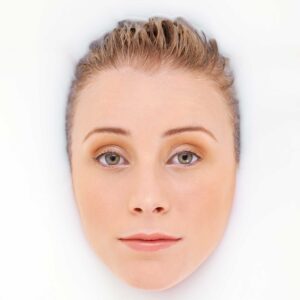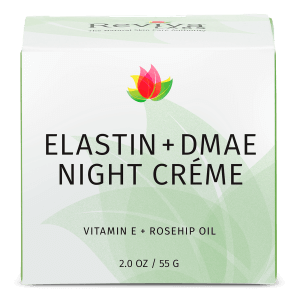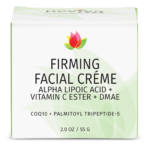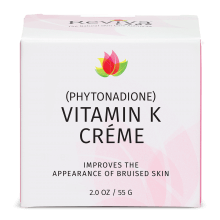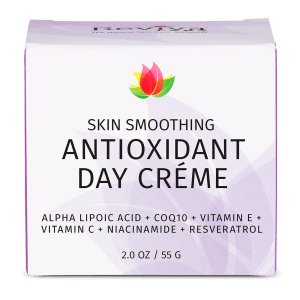Ingredients, Reviva Labs, Skin Care
Are Dimethicones Good or Bad for Skin?
Dimethicone. It’s a word that often pops up on ingredient lists for skincare and cosmetics. Yet, how many of us truly know what it does? For some, the term invokes images of silky-smooth textures and hydrated skin. For others, it’s a source of concern, linked to clogged pores and potential irritation. But what’s the real story? Are dimethicones a friend to our skin or a foe hiding in plain sight? Let’s unravel the science behind this ubiquitous ingredient.
What Exactly Is Dimethicone?
Dimethicone is a type of silicone—a large group of compounds widely used in personal care products. Technically, it’s a polymer made of repeating units of silicon, oxygen, and other elements. Its primary role? Acting as an emollient and occlusive agent. This means it forms a protective layer on the skin’s surface, locking in moisture while providing a velvety finish.
If you’ve ever marveled at how effortlessly a moisturizer glides across your skin or how foundation seems to blur imperfections, chances are you’ve encountered dimethicone. It’s valued for its versatility, making products feel luxurious and enhancing their performance.
The Benefits of Dimethicone in Skincare
At first glance, dimethicone seems like the ultimate skincare ally. Its benefits extend beyond mere aesthetics. One of its standout features is its ability to create a barrier that shields the skin from environmental aggressors, such as pollutants and harsh weather. This protective layer can be especially beneficial for those with compromised skin barriers, such as individuals dealing with eczema or psoriasis.
Another plus? Dimethicone’s non-comedogenic properties. Despite its reputation for forming a film over the skin, it doesn’t clog pores. In fact, its lightweight texture makes it a popular choice for acne-prone skin. By preventing water loss, it helps maintain hydration, which is critical for healthy skin function.
Dermatologists also often recommend products with dimethicone for those dealing with sensitive or irritated skin. Its ability to soothe and protect while minimizing friction makes it a staple in formulations designed to calm redness and discomfort.

Concerns Surrounding Dimethicone
Despite its many benefits, dimethicone isn’t without controversy. Critics argue that its occlusive nature could trap impurities or sweat beneath the skin’s surface, potentially leading to breakouts or irritation. However, this claim lacks robust scientific backing. Most dermatologists agree that unless you’re using products inappropriately or neglecting proper cleansing, dimethicone is unlikely to cause such issues.
Another point of contention is its “artificial” nature. As a synthetic compound, dimethicone doesn’t align with the clean beauty movement’s emphasis on natural ingredients. Some consumers prefer to avoid it in favor of plant-based alternatives, citing concerns about sustainability and potential skin reactions.
The Sustainability Debate
Dimethicone’s synthetic origins also spark questions about its environmental impact. Unlike biodegradable ingredients, silicones can persist in ecosystems for extended periods. While dimethicone itself is considered safe for humans, its accumulation in water sources poses challenges. However, manufacturers are increasingly adopting more sustainable practices, exploring biodegradable alternatives and improving waste management processes.
How Dimethicone Works in Different Skin Types
For oily skin types, dimethicone can be a game-changer. Its lightweight, non-greasy texture helps balance moisture levels without adding excess shine. It also acts as a primer, filling in fine lines and creating a smooth canvas for makeup.
For dry or dehydrated skin, the ingredient’s moisture-retaining properties can be transformative. By sealing in hydration, it prevents the flakiness and tightness associated with dryness. However, pairing dimethicone with humectants like hyaluronic acid is key to maximizing its effectiveness.
Sensitive skin? Dimethicone’s gentle, soothing qualities make it a safe bet. It minimizes irritation and shields against external aggressors, reducing the risk of flare-ups.
Research-Backed Insights
A 2019 study published in the Journal of Cosmetic Dermatology found that dimethicone-based moisturizers significantly improved skin barrier function in individuals with atopic dermatitis. By forming a semi-permeable layer, dimethicone allowed the skin to retain moisture while remaining breathable.
This finding highlights its value in therapeutic skincare, where maintaining hydration is crucial for managing chronic conditions. Still, the study also emphasizes the importance of proper formulation. Pairing dimethicone with complementary ingredients enhances its benefits while minimizing any potential drawbacks.
Myths and Misconceptions
One persistent myth is that dimethicone suffocates the skin. While it’s true that it forms a barrier, this layer is breathable. It doesn’t interfere with natural skin functions, such as sweating or cellular turnover. In fact, many medical-grade products incorporate dimethicone precisely because of its ability to protect without impeding.
Another misconception is that dimethicone is universally bad for acne-prone skin. As noted earlier, its non-comedogenic nature actually makes it suitable for individuals dealing with breakouts. However, it’s essential to choose formulations tailored to your skin type and needs.
Making an Informed Decision
Ultimately, whether dimethicone is “good” or “bad” for your skin depends on individual preferences and concerns. If you’re drawn to its silky texture and protective qualities, it can be a valuable addition to your routine. However, if you prioritize natural or biodegradable ingredients, you might prefer to explore other options.
When incorporating dimethicone into your skincare, pay attention to the overall formulation. Look for products that balance its properties with hydrating, nourishing, or soothing ingredients. And as always, patch test new products to ensure compatibility with your skin.
Is Dimethicone Right for Your Skincare Goals?
Dimethicone is a versatile ingredient with a lot to offer. While it’s not without its critics, most concerns stem from misconceptions rather than scientific evidence. Whether you embrace or avoid it, understanding its role in skincare can help you make choices that align with your goals and values. With a thoughtful approach, dimethicone can be a beneficial part of a well-rounded routine—no myths required.






